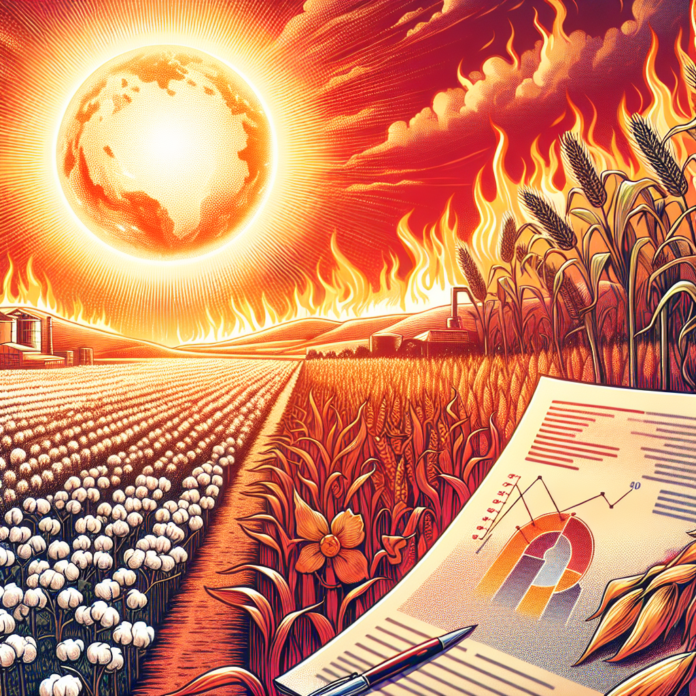Crops Face Risk Amid Unexpected March Heatwave in Central Asia
Crops at Risk as Unanticipated March Heatwave Strikes Central Asia: Research Findings
Recent studies indicate that an unexpected heatwave in March has put agricultural production in Central Asia in jeopardy. This sudden rise in temperatures, which deviates significantly from seasonal norms, poses a considerable threat to a region that relies heavily on its agricultural output.
Impact on Agriculture
The March heatwave has resulted in soaring temperatures that are not only unusual for this time of year but also detrimental to crop health. Farmers in countries such as Kazakhstan, Uzbekistan, and Kyrgyzstan are already reporting adverse effects on staple crops like wheat, barley, and cotton. The elevated temperatures can lead to accelerated evaporation rates, reducing soil moisture and stressing the crops.
Potential Economic Consequences
The economic ramifications of this unexpected climatic event could be severe. Central Asia is known for its agriculture, which constitutes a significant portion of its GDP. A decline in crop yields could threaten food security in the region and impact local economies, particularly in rural areas where agriculture is a primary source of income.
Climate Change and Future Risks
Experts warn that such extreme weather events may become more frequent due to climate change. The region has already been experiencing shifts in weather patterns, leading to unpredictable seasons and increased vulnerability for farmers. With rising global temperatures, Central Asia could face more frequent heatwaves, droughts, and other climate-related challenges that threaten its agricultural stability.
Adaptation Strategies
To combat these challenges, agricultural experts are advocating for the adoption of more resilient farming practices. This includes diversifying crop types, implementing water-saving irrigation technologies, and investing in climate-resistant crop varieties. Policymakers are also urged to enhance support for farmers to adapt to these changing conditions, ensuring food security for the future.
In conclusion, the March heatwave serves as a stark reminder of the vulnerabilities faced by Central Asian agriculture. As climate change continues to influence weather patterns, proactive measures will be essential to safeguard crops and the livelihoods of those who depend on them.


